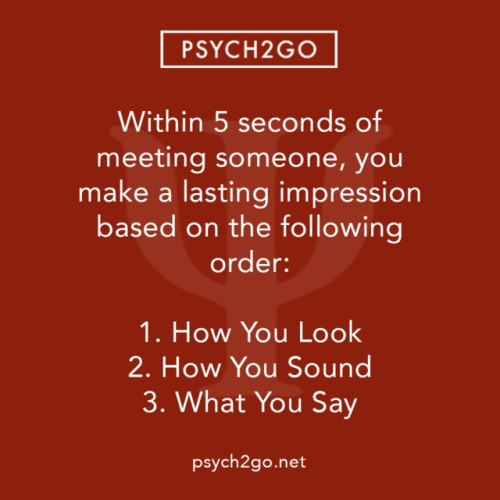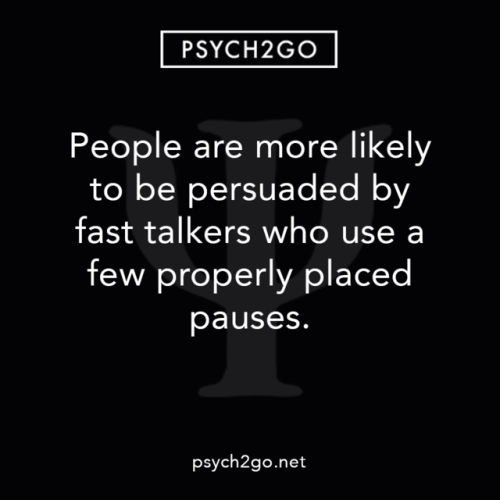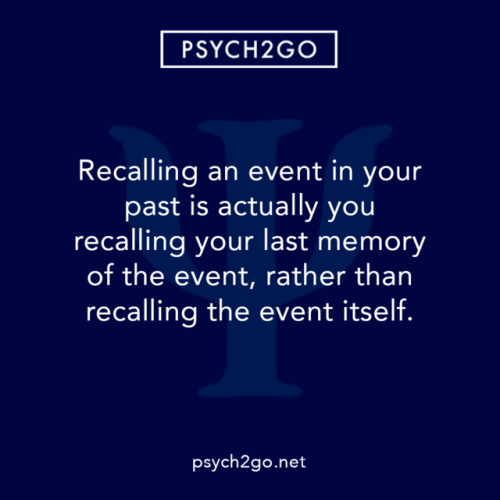Latest Posts by drtanyasinghsworld - Page 7

“Don’t let your loyalty become slavery. If they don’t appreciate what you bring to the table then let them eat alone.”
— Unknown
Leaving Abuse: How It Feels, How to Do It, and How to Get Through It.

How It Feels
Being in an abusive relationship is like trying to hold the ocean in a fishbowl, and feeling guilty when it cracks. Leaving is like drinking the water. It’s nasty and overwhelming. Part of you feels like you won’t be able to survive it, and when you do you still feel it in your stomach for days to come, but at least you’re not holding it anymore. Eventually, it will become diluted by everything else in your life, and all that will be left is the pain that comes from the knowledge of what you once tried to hold, and the after-effects of the scaring the salt water left on the lining of your stomach.
It’s messy, and it’s painful. It will be one of the ugliest things you’ll ever go through, but in the end, you’ll be proud of yourself for making it through. You may not even know until you decide to leave that it counts as abuse. It can be a lot like sitting blindfolded, as your house burns around you. There is a period, when you think the smoke is just bad cooking, but then you feel the fire.
How to Do It
From emotional to physical abuse, the emotions and recovery tend to ring the same, but if you live with your abuser, the first initial steps will be different.
If you live with your abuser, it’s best to make a plan to leave, including where you will be staying after (whether it be a friend’s house or shelter). If your abuser is physically violent, you may want to pack in secret. Take any personal belongs, and important documents such as school records, birth certificates, etc. One way to do this more discreetly would be to…
CONTINUE READING HERE
rape
do you know what no means?
i was begging you please don’t…
but that won’t stop you,
you’ll do what you want to,
leaving me mentally and physically bruised.
forever feeling empty and abused.
you refused to admit you’d done wrong,
and it’s been so long.
but it’s still on my mind.
all the time.
like a song stuck in my head.
you are my sad song that makes me wish i was dead.
i never want to get out of bed,
afraid to be seen,
i don’t wanna be heard.
you took what was mine,
left me destroyed,
and walked away fine.
—z.k.g
( via: @shrinking-addiction )
How to Make Yourself Do What You Don’t Want To Do
1. Rather than listening to the voice in your head that is screaming “I hate this; I don’t want to do this” think about why it is a GOOD thing to do.
2. Instead of trying to pretend that you don’t feel this way, accept that you are feeling very blah and negative.
3. Don’t think about results and how well you think you’ll do, as this could raise your feelings of anxiety and fear, just think about “right now” and the first thing you can do.
4. Accept that life is tough, and is full of things that suck – but recognise that doing hard stuff is better in the end. You’ll likely have more choices and freedom, if you do.
5. Just do a little bit for now – then give yourself a proper break – then go back and do some more – and soon you’ll find you’re in the flow.
6. Don’t allow your mind to wander and think of other things. Stay focused for that short time – and then stop, and have fun.

The “Mental Illness Recovery Series” book has 100 inspirational stories that explores the exhausting, but noble journey of recovery.
📍🗺 Where to buy it :) = http://awakesociety.com/mental-illness-recovery-book/ 🗺📍
Mental disorders found in the book:
🔻Depressive disorders
🧠Anxiety disorders
🔺Bipolar & related disorders
🧠OCD & related disorders
🔻Eating disorders
🧠Schizophrenia spectrum & psychotic disorders
🔺Conduct disorders
🧠Dissociative disorders
🔻Neurodevelopmental disorders
🧠Personality disorders

“When truth is replaced by silence,the silence is a lie.”
— Yevgeny Yevtushenko
5 Helpful Self Care Tips for Empaths

A person who is an empath is a rarity among our population: only about 25% of the human population are empaths. The difference between a person having empathy and an empath is that while it’s normal to have the ability of empathizing with others, empaths feel on a much deeper emotional and spiritual level. They are very sensitive to other people’s emotional energies, and can easily sense and take on another’s vibes, positive and negative. For example, if we see another person cry, we feel the urge to cry too. If our friend is really excited about something, we start to feel just as excited. If someone around us is spreading negativity, it can end up making us feel sick.
Science researchers have discovered what’s called “mirror neurons” which are a specialized group of brain cells that are responsible for compassion. Empaths are believed to have hyper-responsive mirror neurons, which means we can mirror others’ emotions easily and instantly.
Since empaths feel on such an intense level, sometimes this can feel like a disadvantage. The place we live, the company we keep, observations of the world around us, and life’s inevitable trials and tribulations can really take a toll on an empath. Empaths are very easily stressed and overwhelmed, so it’s especially important for us to practice self care on a regular basis. Here are some great self care techniques that can help empaths keep stability in their mental, emotional, and spiritual state. These tips are also helpful for people with anxiety disorder.
1. Aromatherapy
Aromatherapy is an excellent form of self-care for empathetic people. We tend to be sensitive and appreciative of pleasant aromatic scents such as lavender, mint, hibiscus, lemongrass, florals, or exotic fruity aromas…
CONTINUE READING HERE
“Home is where you feel at home. I’m still looking.”
— Truman Capote
5 Things to Remember When You Want to Give Up on Life
Your problems are temporary, but suicide is not.

Spring is now in full bloom, so things are looking up. At least, that’s what is to be expected, right? But for those of us who are battling anxiety or depression, we may not feel the same alleviation. According to the Centers for Disease Control (CDC), 38,285 deaths were caused by suicide in 2011, which translates to approximately 734 deaths per week. The rate, however, unfortunately grows even higher when the flowers start to blossom. Winter has a reputation for being the most brutal, so why is it during the season of rebirth that most people decide to take their own lives?
Biometeorologist Grady Dixon from Mississippi State University states that he discovered two potential theories that explains the tie between spring and suicide. Dixon hypothesizes that when the season arrives, people with severe depression are motivated to take action and follow through with taking their own life. Winter, on the other hand, often freezes their desire to make a plan to do it when they feel overwhelmed and disengaged. Dixon’s second theory proposes that…
CONTINUE READING HERE

This still image was created by a Japanese neurology professor Yamamoto, and he told the instructions below: If its not moving, or just moving a little, you are healthy and has slept well. If its moving slowly, you are a bit stressed or tired If its moving continuously, you are over-stressed
7 Extremely Common Forms of Verbal Abuse

Verbal abuse is touched on in the article “10 Red Flags of an Abusive Relationship.” For this article we hope to expand on that topic. One study found that 65% of the participants were victims of verbal abuse at some point in their life. Verbal abuse is one of the first forms of abuse within a relationship. It is important to understand that verbal abuse doesn’t stop at being told you are worthless or stupid. Some forms of verbal abuse can be sneaky, leaving the victim wondering if something really happened or if they are just overreacting. This list, from Psych2Go, hopes to shed some light on some of the more common forms of verbal abuse.
1. Belittling/criticizing
This form of abuse isn’t so sneaky, but it really can sting. Belittling is a way for the abuser to make the victim feel small or stupid, without specifically saying it. Belittling can come in the form of something known as jabs. Jabs are small comments meant to have a large emotional impact.
It’s so cute when you try to talk about something you’re clueless on
It’s best if you give up
Try not to take things so personally
As much as they try to sound caring, they are sarcastic remarks…
CONTINUE READING HERE



kindergarten tactics

If you keep Fighting with darkness you will get tired . Light the lamp and enlighten your Soul. TheSoulIsYouAndLoveIsYours //fb page







Subscribe to the YouTube for more about the human brain and behaviour!
6 Side Effects of Toxic Parenting

When Rapunzel left the tower and the evil witch she thought was her mother, she stepped into freedom and found adventure. But despite her escape, when she looks back, there will be an irreversible damage that lingers. Healing from dysfunctional families hurts. There’s no way around it. Even when you leave them and find another home elsewhere, you’re still carrying the weight of emotional baggage that scars you for life.
I don’t think it ever gets easier, but the best part about life is that we have the ability to create what we want from it. We can still do the things we love and go on. Healing comes from a place of understanding. If you grew up from a toxic background, we want to shed light on patterns and situations that are hard to understand, mainly because it’s painful. Psych2Go shares with you 6 side effects of toxic parenting:
1. You have a higher risk of developing an anxiety disorder.
When you grow up in a dysfunctional family, you’re at a higher risk of developing an anxiety disorder. According to a study done in 1998, researchers discovered that people who are exposed to toxic parenting on a consistent basis are more likely to develop generalized anxiety disorder (GAD), regardless of whether they were young or in their adulthood. Out of the 940 adults who participated in the study, researchers found that…
CONTINUE READING HERE
7 Tips for Taking Care of your Mental Health
1. Take care of your physical health as this affects your mental health.
2. Take time-out and give yourself some space. You need to get away from the busyness.
3. Invest time in hobbies and doing things you love. These help you to switch off and get in touch with yourself.
4. Develop an attitude of gratitude as that can help remind you of some good things in your life.
5. If you can, do your best to stay in top of the mess as a tidy room can help you feel less stressed.
6. Have at least one friend you can turn to when you’re down, as we all need someone who we know is there for us,
7. Avoid toxic people who leave you feeling bad. You have a right to establish healthy boundaries.
What are some red/yellow flags for interviewing graduate psychology programs?
great question! if others have additions, please add on! state your discipline/degree/country if possible, since there can be such variations across program types.
Yellow Flags:
the grad students don’t seem happy to see you and/or are otherwise unwelcoming
the grad students don’t seem to like each other/there’s an air of competition vs. collegiality among students
the faculty don’t seem to like each other/there’s an air of competition vs. collegiality among faculty
when you ask fairly normal questions- like about outcomes of graduates in the program, match rates, attrition, funding, etc -the faculty get cagey or defensive
you don’t receive an offer to be hosted by a grad student during your visit
the resources, ongoing research projects, clinical opportunities, etc. are different than what is listed in the brochure/website
the program doesn’t offer any in-house clinical training
the faculty is overly positive about you, in a selling-you-something, trying-to-get-you-to-ignore-problems kind of way
Red Flags:
the grad students warn you about the program or a professor
multiple current graduate students haven’t achieved reasonable goals that they set
the professors in some way show blatant disregard for the applicants or the grad students- like, they ask applicants to complete a ridiculous or very difficult task as a part of the interview (I had a friend who was asked to calculate a beta weight by hand on a white board during a group interview) (grad students doing something similar is a yellow flag)
the professors pit applicants against each other or otherwise encourage competitiveness and negativity between applicants
the professors appear to view students as work horses and not trainees
there is some kind of funky outcome (high attrition, low match rates) and the faculty can’t adequately explain it
the program doesn’t offer any in-house clinical training AND they expect students to find their own practicum placements
students only do online surveys and/or undergrad sample research
become a Patron | buy me a coffee | academic consulting | send an ask

“She warned me about how moody she is; she thought I’d easily leave if she showed me all her day faces, but she didn’t know how much I love the moon and all its phases.”
—
Maram Rimawi

It really does get to be fun. What’s the point of stressing, worrying, and being miserable? Instead let’s focus on the positives and enjoy this one life! https://ift.tt/2Ca6fMh
Ours is a love that needs no words.
I hope the universe blesses you with a moment of peace this week. You’re doing the right thing, and you’re going to be okay.








Which of these do you find interesting?
“When someone gives you a rare insight into their life, do not repay that gesture by betraying their trust.”
— Dodinsky
Love Will Find You
“In your lifetime, you will find and meet one person who will love you more than anybody you have ever known & will know. They will love you with every bit of energy & soul. They will sacrifice, surrender and give so much that it scares you. Someday you’ll know who that is.”
PTSD
This is something I see get thrown around a lot and is rarely used correctly.
Summarized DSM-V Criteria
A. Definition of trauma;
The person has experience, witnessed, or been confronted with an event or events that involve actual or threatened death or serious injury, or a threat to the physical integrity of oneself or others.
the persons response involved intense fear, helplessness, or horror.
B. Re-experiencing; traumatic experience is persistently re-experienced at least one way:
recurrent and intrusive distressing recollections of the events, including images, thoughts, or perceptions
recurrent distressing dreams of the event
acting or feeling as if the traumatic event were recurring (includes a sense of reliving the experience, illusions, hallucinations and dissociative flashback episodes
intense psychological distress at exposure to internal or external cues that symbolize or resemble an aspect of the traumatic event.
physiologic reactivity upon exposure to internal or external cues that symbolize or resemble an expect of the traumatic event.
C. Avoidance/Numbing; persistent avoidance of stimuli associated with the trauma and numbing of general responsiveness indicated by at least three of:
efforts to avoid thoughts, feelings, or conversations associated with the trauma.
efforts to avoid activities, places, or people that arouse recollections
inability to recall an important aspect of the trauma.
markedly diminished interest or participation in significant activities
feeling of detachment or estrangement from others.
restricted range of affect (ex; unable to have loving feelings) sense of a foreshortened future (ex; does not expect to have a career, marriage, children, or a normal life span.)
D. Hyper-Arousal; persistent symptoms of increased arousal (not present before the trauma) as indicated by at least two of the following;
difficulty falling or staying asleep
irritability or outbursts of anger
difficulty concentrating
hyper-vigilance
exaggerated startle response.
“Sensitive people should be treasured. They love deeply and think deeply about life. They are loyal, honest, and true. The simple things often mean the most to them. They don’t need to change or harden. Their purity makes them who they are.”
— Kristen Butler


Ways to Get Mentally Tough
1. When you face a setback, think of it as a defining moment that will lead to a future accomplishment.
2. When you encounter adversity, remember, the best don’t just face adversity; they embrace it, knowing it’s not a dead end but a detour to something greater and better.
3. When you face negative people, know that the key to life is to stay positive in the face of negativity, not in the absence of it. After all, everyone will have to overcome negativity to define themselves and create their success.
4. When you face the naysayer’s, remember the people who believed in you and spoke positive words to you.
5. When you face critics, remember to tune them out and focus only on being the best you can be.
6. When you wake up in the morning, take a morning walk of gratitude and prayer. It will create a fertile mind ready for success.
Keep reading
